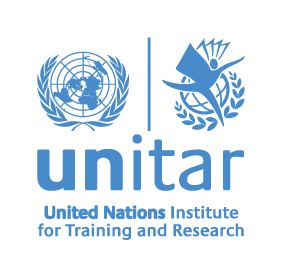Why is it relevant in the context of RECP?
Aligned to international efforts on the sound management of chemicals, the SMC Tools Platform is relevant in the context of Resource Efficiency and Cleaner Production (RECP) assessment in chemical companies.
The SMC Tools Platform supports RECPnet members and SMC-related service providers that assist SMEs to develop and implement cleaner and resource efficient production related to chemicals. The Platform provides them with tools aimed at improving chemicals management and reducing risks posed to workers, the community and the environment by the use of chemicals.
The SMC Tools Platform provides added value to a REPC assessment by
- providing concrete ways to improve chemical resource efficiency
- identify and eliminate/substitute priority hazardous chemicals
- reduce the risk of accidents and adverse health & pollution impacts
Additional sources
GIZ Chemical Management Toolkit, Module 3 – Hazardous Waste Management
Module 3, Hazardous Waste Management, intends to be a helpful tool for companies, especially SMEs, to identify, quantify, and manage hazardous materials and hazardous waste in an environmentally sound way.
Best Practice Guidelines for Safe (Un)Loading of Road Freight Vehicles, Cefic-ECTA-FECC
The objective of these Guidelines is to assist in the prevention or elimination of unsafe conditions during (un)loading practices.
Industry guidelines for the security of the transport of dangerous goods by road
These Guidelines provide a comprehensive range of technical and operational options so that users can comply with the regulatory requirements of Chapter 1.10 of ADR on Road Transport of Dangerous Goods.
Links to international chemicals management initiatives and networks
The Strategic Approach to International Chemicals Management (SAICM)
Adopted by the International Conference on Chemicals Management (ICCM) in 2006, SAICM is a policy framework to foster the sound management of chemicals around the world. SAICM supports the goal agreed at the Johannesburg World Summit on Sustainable Development that, “by 2020, chemicals are produced and used in ways that minimize significant adverse impacts on human health and the environment.”
Inter-Organization Programme for the Sound Management of Chemicals (IOMC)
Established in 1995, the IOMC aims to initiate, facilitate and coordinate international action to achieve the World Summit on Sustainable Development 2020 goal for the sound management of chemicals. The IOMC has nine (9) Participating Organizations (POs).
The Network for Resource Efficient and Clean Production (RECPnet)
The RECPnet brings together more than 70 providers of Resource Efficient and Cleaner Production (RECP) services, with the objective to catalyze the implementation of RECP in developing countries and economies in transition. The services provided by the RECPnet members help increase productivity, reduce the use of natural resources and reduce emissions, and improve the well-being of workers and communities.
The RECPnet’s online Knowledge Management Systems (KMS)
The Knowledge Management Systems (KMS) aim to serve as online platforms to disseminate and promote best practice RECP concepts, methods, policies and technologies. The objectives of the KMS are:
• To capture and disseminate best practice knowledge and information on RECP concepts
• To strengthen, improve and update the knowledge and skills of the RECPnet members
• To increase awareness of RECP for businesses and other organizations
• To ensure the highest quality in RECP services and develop and promote a global brand for RECP
• To build capacities, foster professional and institutional excellence and leadership of RECPnet service providers
Glossary
Accident: An unplanned and unintentional event that usually results in harm, injury, damage, or loss.
Community: A group of people, including governmental entities, public institutions or groups, and private entities, with diverse characteristics but who are nonetheless linked. They are linked by social ties, economic interests and engage in joint activities of daily life in specific geographical locations or settings. They may or may not share common perspectives on political or social issues.
Disaster: A serious disruption of the functioning of a community or a society involving widespread human, material, economic or environmental losses and impacts, which exceeds the ability of the affected community or society to cope using its own resources. Disasters are often described as a result of the combination of: the exposure to a hazard; the conditions of vulnerability that are present; and insufficient capacity or measures to reduce or cope with the potential negative consequences.
Emergency: An event that will produce or exacerbate injury to people and/or damage to property unless immediate intervention occurs. A threatening condition that requires urgent action.
Hazard: A dangerous phenomenon, substance, human activity or condition that may cause loss of life, injury or other health impacts, property damage, loss of livelihood and services, social and economic disruption, or environmental damage.
Risk: The combination of the probability of an event and its negative consequences.
List of acronyms
| IOMC | Inter-Organization Programme for the Sound Management of Chemicals |
| KMS | Knowledge Management Systems |
| RECP | Resource Efficient and Cleaner Production |
| RECPnet | The network for Resource Efficient and Cleaner Production |
| SMC | Sound Management of Chemicals |
| SMEs | Small and Medium Sized Enterprises |
| SAICM | Strategic Approach to International Chemicals Management |
| UNEP | United Nations Environment Programme |
| UNITAR | United Nations Institute for Training and Research |
| UNIDO | United Nations Industrial Development Organization |
| WSSD | World Summit on Sustainable Development |

